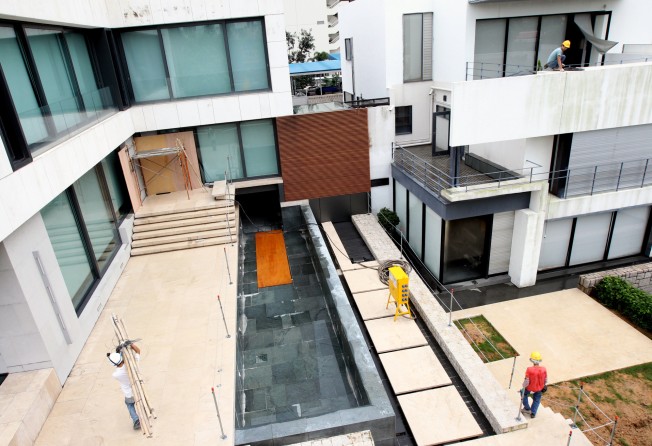Buildings Department slow to act on illegal structures at celebrity homes: Ombudsman
Watchdog finds Buildings Department did not give preferential treatment to prominent figures over illegal structures, but could do better

The Buildings Department was too slow in handling cases of illegal structures at the properties of senior government officials and other public figures, the Ombudsman says.
But the watchdog found no evidence that preferential treatment was given under special procedures set up to deal with such structures in the homes of high-placed figures including Leung Chun-ying and the man he defeated to become chief executive, Henry Tang Ying-yen.
The department set up the system in 2011 to give priority to such cases but an investigation found that prosecutions and warning letters had been delayed by periods ranging from months to years in nine out of the 46 cases. The people involved were not identified.
"The Buildings Department should improve its handling of celebrities' cases or the public may be suspicious that it is not being fair," Ombudsman Alan Lai Nin said. "It's not good for its integrity."
But Lai said no evidence had been found that the delays were a result of preferential treatment. Rather it was due to a lack of manpower which also applied to other illegal structures.
Under the "special procedures" system, a site inspection should be conducted within a few days of a structure being found. The department achieved that in most of the cases except for one which was done 10 days after it received a report.
The structure was confirmed illegal in the first inspection in most cases. In one case, the department sought an explanation from the owner but did not get a response. The investigation dragged on for several months without a result.
In a statement the department said it had handled the case in accordance with its procedures and would not make special allowances because of the owner's identity.
The report identified nine other cases in which the handling was unreasonably slow, citing a case in which it failed to issue an advisory letter six months after the illegal structure was confirmed, and failed to prosecute the owner eight months after issuing the warning letter.
Lai said such slowness defeated the special procedures' purpose: handling the cases quickly to address public concern.
But the department said the special procedures applied only to the initial site inspection, not the process that followed.
Lai added that, in general, the department was slow in investigating illegal structures.
Of about 100 complaints it received in the past three years, about 30 per cent were delayed.
The department said it would reallocate resources in the next year to enforce the accumulated statutory orders against illegal structures.
The department set up the special system in mid-2011 but did not make it public until the following February when public concern mounted over a huge illegal basement at Tang's home in Kowloon Tong.
The Ombudsman said that as the new measure affected the public, it should have been announced as soon as possible.
Guidelines should have been set for the new measures as different officers could have handled them in different ways. The department said it would make improvements.
Leung defeated Tang in the chief executive election in March 2012. Tang's popularity had plummeted, causing him to lose support from Beijing, after his 2,250 sq ft basement was discovered.
Illegal structures at Leung's home on the Peak were revealed in June that year.